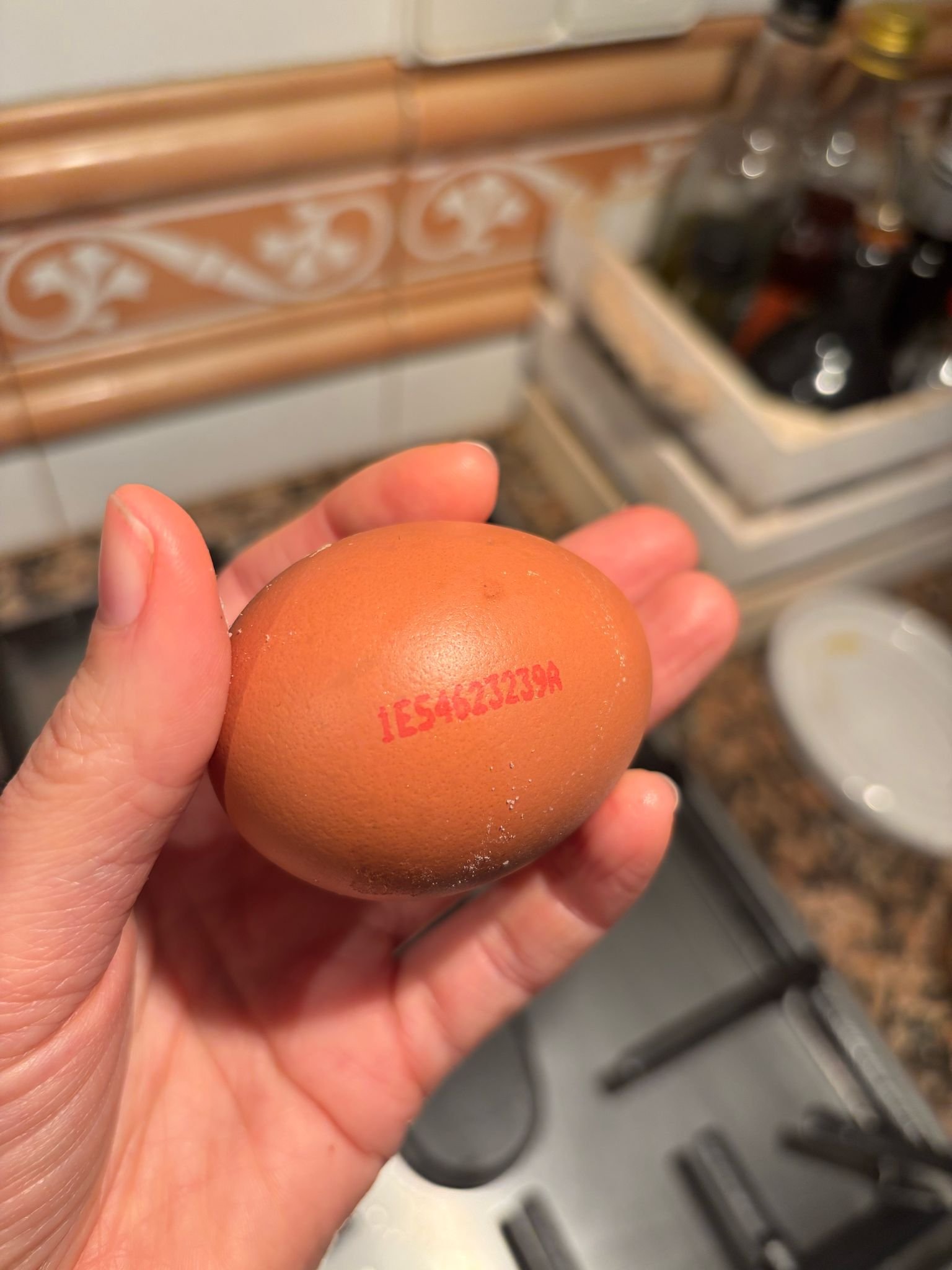Making the Right Choice: Eggs for You & the Planet
EGG QUALITY GUIDE
When you buy eggs at the supermarket, you might assume they’re all equal—but they’re not! In the European Union and the UK, eggs are categorized into four types based on how the chickens were raised. Don’t be misled by vague packaging claims like “Eggs from happy chickens” or “Farm-raised”—these phrases have no legal definition and can be misleading.
How to Identify Egg Quality?
Instead of relying on packaging, check the number stamped on each egg. You only need to pay attention to the first digit, which tells you how the chickens were raised and whether they were caged, free-range, or organic.
What Do the Egg Codes Mean?
Pay attention to the first digit, like number 1 for this egg in the photo.
🥚 3 - Caged ❌ (Avoid!)
- Chickens are confined in tiny cages with no room to move.
- No natural light, fresh air, or ability to express natural behaviors.
- These eggs come from the most inhumane conditions and are best avoided.
🥚 2 - Barn ⚠️ (Better, but still not good enough)
- No cages, but chickens are packed indoors with very little space.
- No access to the outdoors, and movement is severely restricted.
🥚 1 - Free-Range ✅ (Good Choice!)
- Chickens have outdoor access.
- More space to roam and engage in natural behaviors.
- A healthier and more ethical option compared to types 2 & 3.
🥚 0 - Organic 🌿💚 (Best Option!)
- Chickens are raised with outdoor access and more space.
- Fed organic, GMO-free feed.
- Higher welfare standards, leading to better nutritional quality in eggs.
Why Does It Matter? 🧐
Most type 3 (caged) and type 2 (barn-raised) chickens live in overcrowded conditions with artificial lighting manipulated to increase egg production. The lack of space and fresh air means these chickens are prone to disease, leading to frequent antibiotic use—often as a preventative measure rather than a treatment.
Why is this concerning? 🤔
Overuse of antibiotics in our food chain contributes to gut health issues, hormone imbalances, and weakened immunity. Our bodies are already exposed to antibiotics through medicine; we don’t need additional traces coming from our food.
If you care about animal welfare, visiting a caged or barn-raised chicken farm would be eye-opening. The cramped, stressful environment these chickens endure significantly affects the quality of their eggs.
The Takeaway: Choose Wisely! 🥚💛
Eggs are an incredible source of nutrition, but where they come from matters. The diet and stress levels of chickens directly impact the eggs they produce. To get the most ethical and nutritious option, choose free-range (1) or organic (0) eggs whenever possible.
🔗 Read More: Discover the full benefits of eggs and how they support your health [HERE].

